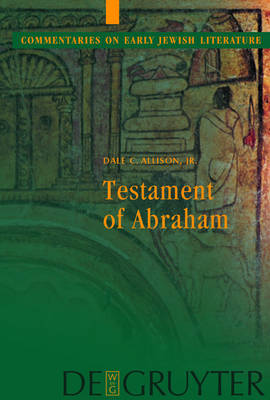Commentaries on Early Jewish Literature
2 total works
This first verse-by-verse commentary on the Greek text of the Testament of Abraham places the work within the history of both Jewish and Christian literature. It emphasizes the literary artistry and comedic nature of the Testament, brings to the task of interpretation a mass of comparative material, and establishes that, although the Testament goes back to a Jewish tale of the first or second century CE, the Christian elements are much more extensive than has previously been realized. The commentary further highlights the dependence of the Testament upon both Greco-Roman mythology and the Jewish Bible. This should be the standard commentary for years to come.
This is the first full-scale, verse-by-verse commentary on 4 Baruch. The pseudepigraphon, written in the second century, is in large measure an attempt to address the situation following the destruction of the temple in 70 CE by recounting legends about the first destruction of the temple, the Babylonian captivity, and the return from exile. 4 Bruch is notable for its tale about Jeremiah's companion, Abimelech, who sleeps through the entire exilic period. This tale lies behind the famous Christian legend of the Seven Sleepers of Ephesus and is part of the genealogy of Washington Irving's "Rip Van Winkle." Allison's commentary draws upon an exceptionally broad range of ancient sources in an attempt to clarify 4 Baruch's original setting, compositional history, and meaning.

